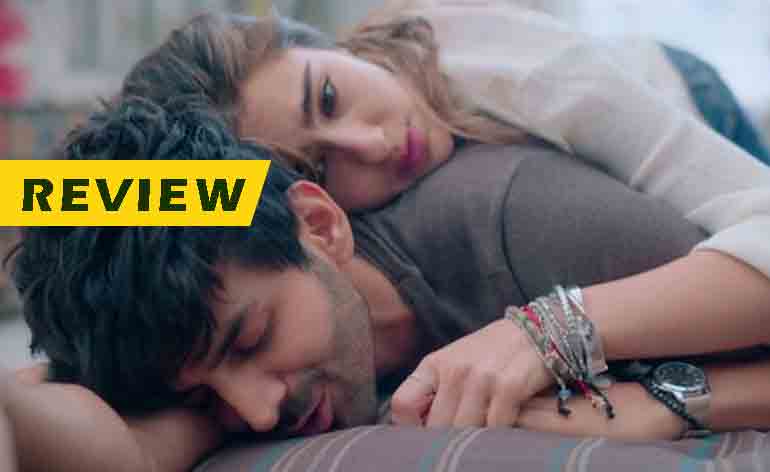I am that Imtiaz Ali fanboy who gets moved emotionally every time I see a film like Tamasha or Rockstar. The 2009 version of Love Aaj Kal was one of the most simplistic Imtiaz Ali movies that I don’t really adore much. Like most people, I was also disappointed seeing the trailer of his 2020 version of Love Aaj Kal. But I was pleasantly surprised by the time I finished watching the Kartik Aaryan – Sara Ali Khan version of Love Aaj Kal. The Rishi Kapoor character in the 2009 version was in a way supporting the glossy romance we see in movies and in this new Love Aaj Kal, you can see more perplexed characters and complex dilemmas.
Veer and Zoe are our main protagonists. Zoe was never ready for a committed relationship as she wanted to have a solid career. The nerdy Veer, on the other hand, had his own concepts about a good relationship and his methods to stay close to Zoe were a bit weird. So at one point, the decision to move forward with the relationship starts to bother Zoe extremely and how she comes out of that conflict with clarity is the story of Love Aaj Kal.
If you look at the old Love Aaj Kal now, it is almost like the DDLJ generation telling the Dil Chahta Hei generation that you guys are spoilt brats and don’t know stuff like compromise, persistence, and love. Somewhere while watching the new Love Aaj Kal, I felt Imtiaz Ali was trying to give a software upgrade to his old movie. Randeep Hooda as Raghu is the Rishi Kapoor equivalent of the old Love Aaj Kal. But here, that character has an extremely grey layer that gets revealed towards the midpoint. Even after being an ardent fan of the director, I also felt that Imtiaz Ali was recycling his scripts when the trailer of Love Aaj Kal released. But as he said in a recent interview, there is a reason for a revamp like this. This 2020 film has a more raw approach towards human vulnerabilities. Imtiaz Ali in a way is admitting that how the so-called morality code made him make movies that had characters with fewer complexities and how scared he was to place them in grey zones. The dilemma in Zoe’s head is extremely relatable and the point where the couple reaches, in the end, is also something close to being sensible or practical.
If my understanding is correct, it was Sara Ali Khan who got trolled brutally for her “overacting” in the trailer. Except for one tiny bit in the second half (where she cries along with Randeep Hooda), I found her performance extremely good and in my opinion, she made that character believable despite the characteristics assigned to Zoe being a bit too loud. Towards the end of the movie, as Veer, Kartik Aaryan is extremely convincing. The goofiness he shows in the initial portions of both characters was overdone and in between, he was in the usual Kartik Aaryan zone. Randeep Hooda as the easy and cool restaurant owner is so elegant and fun to watch. I really loved the conversation between Raghu and Zoe in this movie; in the future, you might see a lot of those motivational dialogue screenshots featuring the two. Aarushi Sharma as Leena is also convincing.
Imtiaz Ali movies have mostly received polarized feedbacks. Imtiaz knows how to press the buttons that are buried deep inside a segment of the audience. Here, the way he unravels the lack of confidence of both the protagonists in an institution like marriage is in a very interesting way. Veer wants Zoe to sort out her confusion by herself so that he won’t have to live a life similar to his parents who are now sleeping in separate rooms. Similarly, Zoe is also getting confused when her mother changes her stand suddenly. Imtiaz has occasionally got criticized for making women characters as triggers for the men to realize their true potential. Here the reverse is happening. And like I already said there is a drastic change in the way the mediator character played by Randeep Hooda is depicted. Amit Roy’s visuals are good and as always Aarti Bajaj understands the soul of what Imtiaz wishes to convey. With an under 5 seconds montage of Veer’s parents, she helps Imtiaz in conveying a lot. Music has a better connection with the narrative when compared to the previous Love Aaj Kal.
In my opinion Love Aaj Kal sort of registers the evolution of the same idea. The 2009 version of Love Aaj Kal is what you imagine when you are a teenager and knows less about the equations in a relationship. But the 2020 version doesn’t want to be so glossy about relationships and it embraces the human vulnerabilities. To all those Imtiaz Ali “Bhakts” like me who have movies like Rockstar and Tamasha in their go-to movies list, the new Love Aaj Kal is definitely worth a watch.
To all those Imtiaz Ali “Bhakts” like me who have movies like Rockstar and Tamasha in their go-to movies list, the new Love Aaj Kal is definitely worth a watch.
Green: Recommended Content
Orange: The In-Between Ones
Red: Not Recommended

